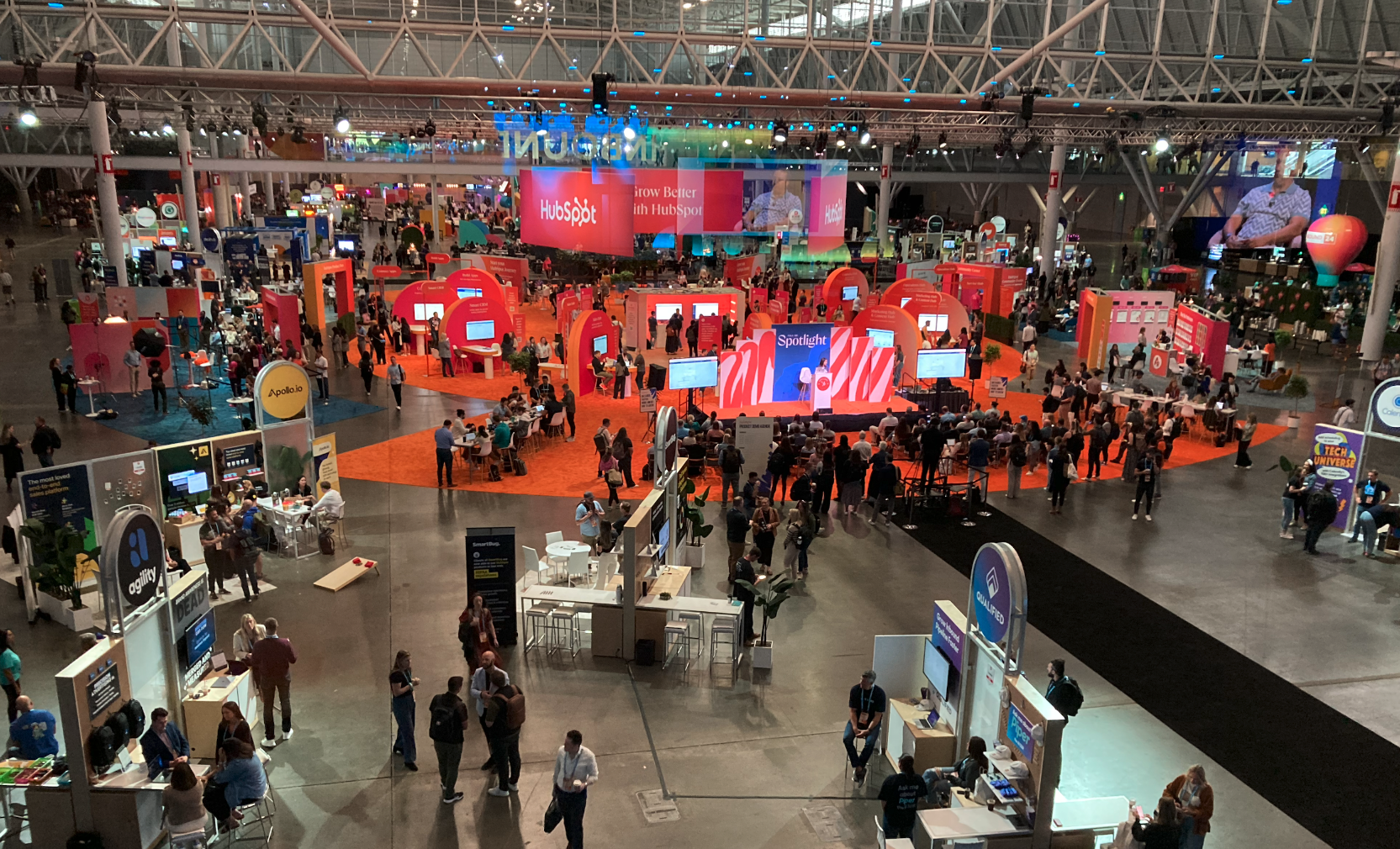It's artificial - #397

This week has found me at Boston's Convention Center for another INBOUND conference, my eighth since joining HubSpot. For me, the event is a compressed few weeks of my normal job: meeting HubSpot's larger and more complex customers and helping them understand how to accomplish their goals with our software. For almost all the rest of the fifteen thousand attendees, the event is a hype train.
The hype starts when they announce the celebrity speakers (Ryan Reynolds! Serena Williams! David Spade!), continues when they build out the convention center with "activations," and builds when everyone cheers for all-new AI things. After last year's AI conceptual discussions and early feature launches, this year was AI's real coming out party: it's now a big part of HubSpot's toolset and the most prominent theme of the event.
The line between hype and reality is always tough to pin down. It's even tougher for big trends in tech, like "the blockchain" or what-have-you. If something makes it to the IBM commercial, you can be sure that there's some hype involved, but also that there's something real: they don't make $8 billion in annual profits on hype alone.
On hype, I've been thinking about these lines from Palantir CEO Alex Carp:
The enterprise software business had for years been crowded with companies whose principal innovation was selling a product that was capable of little more than reincorporating and shuffling data around in what amounted to yet another storage system.
He goes on to say that the only way to differentiate those kinds of products is with over-investments in sales and marketing. He prophecies doom on them. The rest of his letter proceeds along these lines of useless puffery, right in line with the vaporware Palantir's sales bros pitched me in 2012 or 13. But the idea that most enterprise softwares collect and shuffle existing data into another storage system feels apt. Whose tools actually do anything useful? Does this AI stuff do anything or is it all hype?
After a series of less than useful analogies, AI as user interface, AI as iPhone, AI as industrial revolution, Christopher Mims puts his fingers on where AI's hype hits reality: AI is becoming an omnipresent product feature. Omnipresent because there's a race to install it everywhere; feature because, despite what the skeptics say, it sometimes can be useful. There's some silliness, still: in our software, you can type in what you want and AI will make a less than useful report or automation or segment. You can ask it to write something, and you'll get an intern's level of work.
I don't think we need a chatbot to replace your rough draft or to replace a few intelligent clicks. But there are some harder problems being niftily solved: AI is using text to create video and video to create annotated transcripts; it's taking your meeting recordings and producing concise summaries and noting action items; it's producing a rough draft of more complex data culling formulas and bits of custom coding for server-less functions. These are tedious things that take time and a little AI seems to go a long way.
There are more AI as feature use cases, from Mims's Sept. 13 column:
Recently, I plunged down the surprisingly deep rabbit hole of how AI is used in one of the industries you’d least expect: Construction.
Executives at builders, software startups and other suppliers in the industry told me companies are using all kinds of AI-powered tools to speed up labor-intensive tasks in an industry desperate to increase efficiency. (McKinsey regularly notes that per-worker productivity in construction has stagnated for decades.)
AI is helping to estimate the cost of new projects, manage and track workers on-site, and detect issues with construction plans to avoid the common and costly headache of having to rebuild parts of a structure.
Like most tech features, AI isn't doing an entire job. Instead, it's helping a person be a bit more effective at the job they're doing. It's a tool.
If you're sensing cautious optimism on AI, then you're exactly right. That's where I'm coming down on it now. For the opposing point of view, that it's all hype and not useful at all, then read Ed Zitron's essay, linked below.
Reading
 Pop Culture
Pop Culture
For Goldman to suddenly turn on the AI movement suggests that it’s extremely anxious about the future of generative AI, with almost everybody agreeing on one core point: that the longer this tech takes to make people money, the more money it's going to need to make.